We were focused on promoting human health through providing unprecedented insights into the role of medicine and psychiatry in understanding, interpreting, treating, prosecuting, and preventing sexual violence.
We placed medical professionals at the heart of debates, and our project spanned both historical and contemporary, regional and global perspectives. Sexual harms are experienced by people across different societies. It can happen to anyone, at any age and at any time. Often these events are shrouded in shame and many things are never uncovered or understood. Our interdisciplinary project sought to understand the role played by medical professionals, including psychiatrists, in understanding and dealing with sexual harms.

People
SHaME was an interdisciplinary team exploring diverse aspects of sexual harms across time and geographical region. We pursued collaborations with survivors, artists, scholars, practitioners and activists.
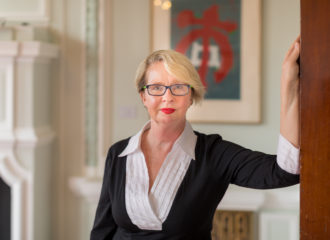
Professor Joanna Bourke
Joanna Bourke is the PI for this project, although the day-to-day running is done by Dr Ruth Beecher. Joanna is Professor of History at Birkbeck, University of London, and a Fellow of the British Academy. She is the prize-winning author of fifteen books, including histories on modern warfare, military medicine, psychology and psychiatry, the emotions, what it means to be human, pain, and rape, as well as over 120 articles in academic journals. In 2022, Reaktion Books published Disgrace: Global Reflections on Sexual Violence. Her books have been translated into Chinese, Russian, Spanish, Catalan, Italian, Portuguese, Czech, Turkish, and Greek. Disgrace is also an audio book. Joanna is a frequent contributor to TV and radio shows, and a regular correspondent for newspapers.
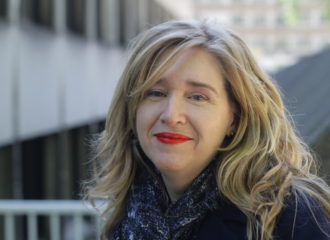
Dr Ruth Beecher
Dr Ruth Beecher is in charge of the day-to-day running of SHaME. She is a postdoctoral research fellow on the SHaME project. She is a social and cultural historian with interests in the history of race, gender, children and families, and popular culture in the US and UK in the twentieth century. She is trained in both applied and historical research (University of Sheffield and Birkbeck). Prior to the project, she managed a range of family support services in London.

Dr Rhian Keyse
Dr Rhian Keyse is a postdoctoral researcher on the SHaME project. She is a social and cultural historian of gender in modern Africa. Her doctoral research examined international, imperial, and local responses to forced and early marriage in British colonial Africa. Her current project examines the histories of medico-legal responses to sexual violence in (post)colonial Anglophone Africa, c.1920-1985, with a particular focus on Ghana and Kenya. Prior to joining the project, Rhian worked in the gender-based violence sector, most recently providing trauma support to homeless women with experiences of sexual violence.
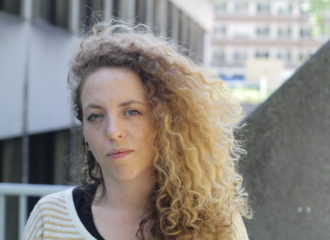
Adeline Moussion
Adeline Moussion joins SHaME as a doctoral student. She was formerly a student at the EHESS (MA Anthropology) and the ENS Lyon (MA History of Philosophy). Her PhD is an anthropological study of socio-medical support for victims of sexual violence in two French organizations.

Emma Yapp
Emma Yapp joins SHaME as a doctoral student. They were formerly employed at King’s College London as a research worker on projects about domestic and sexual abuse and mental health, and come from a background in Philosophy and Psychology. Their PhD explores how psychiatric evidence about survivors of sexual violence is used in court proceedings in England and Wales.
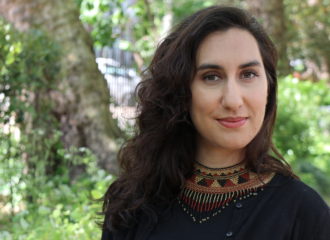
Dr Rhea Sookdeosingh
Rhea Sookdeosingh is the Public Engagement Lead for the project. She is an experienced public engagement practitioner and has previously worked in capacity-building roles at Birkbeck and the University of Oxford. Rhea works to develop and steward partnerships that drive humanities-led research and innovation, and she has an overarching interest in showcasing the social and civic value of arts and humanities research and practice. She is also an historian with interests in the intellectual, social and cultural history of medicine. Her first monograph on the history of anorexia nervosa in nineteenth-century Britain is forthcoming with Oxford University Press. Rhea is currently the co-chair of Birkbeck’s staff diversity network REACH (Race, Ethnicity & Cultural Heritage), which works to support and amplify the voices of underrepresented ethnically diverse staff across the University.
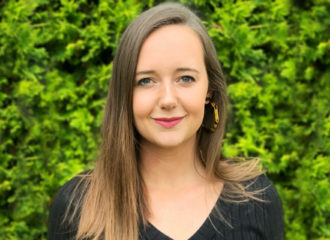
Allison McKibban
Allison McKibban is a Senior Associate Fellow and the former Public Engagement Coordinator (maternity cover) for the project. She was formerly a student at the LSE (MSc Gender, Policy and Inequalities) and at the University of Oxford (MSt History), as well as the Public Engagement Coordinator for Prof Julia Laite’s ‘What is Public History Now?’ Network and the Architecture, Space and Society Centre (Birkbeck). Her PhD explores how U.S. federal policy utilizes colonial discourse to (re)produce sexual violence against Native American women. She is particularly interested in creative methods of co-production in activist research.
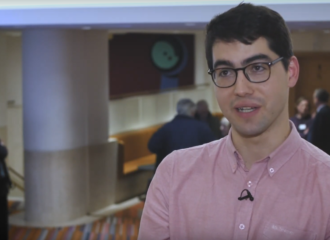
Dr George Severs
Associate Fellows
In addition to our core team, SHaME supported a thriving network of Associate Fellows.
Dr Stephanie Wright
Dr Stephanie Wright is an Associate of the SHaME project, where she was previously a postdoctoral researcher before going to a lectureship at the University of Lancaster. She is a social historian of modern Spain with broader interests in the history of psychiatry, disability, and gender. Her previous research examined the experiences of maimed veterans of the Spanish Civil War. She will continue to explore the social history of violence and the body in her next research project, which will explore sexual violence in Francoist Spain through the concept of ‘dishonest abuses’ (abusos deshonestos).
Dr Louise Hide
Dr Louise Hide is a Wellcome Trust Fellow in Medical Humanities and joins SHaME as a Senior Associate Fellow. A social and cultural historian who has published on the history of psychiatry and its institutions, her current project is titled ‘Cultures of Harm in Residential Institutions for Long-term Adult Care, Britain 1945-1980s’. She recently co guest edited with Joanna Bourke a special issue of the Social History of Medicine. Her first monograph Gender and Class in English Asylums, 1890-1914 was published by Palgrave Macmillan in 2014.
Dr Caitlin Cunningham
Dr Caitlin Cunningham recently completed her PhD and joins SHaME as a Senior Associate Fellow. She works on themes of sexuality, settler colonialism, gender, race, medicine, the law, and sexual violence in the nineteenth century.
Dr Charlie Jeffries
Dr Charlie Jeffries is a lecturer at the University of Sussex. Her research focuses on the history of sexuality and the history of social movements in the late twentieth-century and early twenty-first century United States. Her current research project traces the history of anti-sexual violence activism on US campuses from the 1990s to present. She has work published in the Journal of American Studies, and her first monograph, on the history of adolescent sexuality in the US culture wars, is forthcoming with Rutgers University Press.
James Gray
James Gray is a critically acclaimed documentary filmmaker, and a Senior Adviser to the SHaME project. Over the past decade, he has written, produced and directed over twenty hours of factual television for all the major UK broadcasters, with a particular focus on history and documentary subjects. He has made films on a diverse range of subjects; encompassing everything from the Lockerbie Bombing, to the history of the Council Flat in Britain, and from Hadrian’s Wall to the History of Dentistry. As well as producing and directing, he also works as a Development Producer, bringing new ideas to the screen.
Dr Gethin Rees
Newcastle University
Dr Gethin Rees is Lecturer in Sociology at Newcastle University and joins SHaME as an Associate Fellow. His research interests are in the work of healthcare professionals as they engage with criminal justice, and he has previously explored the work of Forensic Medical Examiners (FMEs), Forensic Nurse Examiners (FNEs) and Sexual Assault Nurse Examiners (SANEs) as they perform the forensic medical intervention following sexual assault. Alongside his work on the forensic intervention Dr Rees has also explored the public reaction to the use of anti-rape technologies and has explored the introduction of the embedding of nurses into police custody suites to provide healthcare to detainees.
Dr Julia Laite
Birkbeck, University of London
Dr Julia Laite is Reader in Modern History at Birkbeck, University of London and joins SHaME as an Associate Fellow. Her research focuses on sexual labour, women’s migrant labour, and the reality and discourse of ‘sex trafficking’ in the early twentieth century. Dr Laite takes a rights-based approach to the question of sexual labour, and is a vocal advocate for the decriminalisation of commercial sex. Amongst others, she is the author of Common Prostitutes and Ordinary Citizens: Commercial Sex in London, 1885-1960 (Palgrave, 2012).
Hatty Nestor
Birkbeck, University of London
Hatty Nestor is a writer and academic and is presently completing an AHRC-funded Ph.D. about Ana Mendieta at Birkbeck, University of London. Her writing has been supported by the Arts Council and appears in Frieze, Art in America, The White Review, Gender Forum, and many other publications. Her research interests include feminist archiving, trauma, sexual violence, affect theory, and interdisciplinary writing. Her first book, Ethical Portraits, is forthcoming from Zero Books (2021), which explores gendered representation within the US criminal justice system, on subjects such as Chelsea Manning and Forensic e-fits.
Dr Silvia Posocco
Birkbeck, University of London
Dr Silvia Posocco is a social anthropologist based in the Department of Psychosocial Studies, Birkbeck, University of London, and joins SHaME as an Associate Fellow. Dr Posocco’s research focuses on situated experiences of violence, conflict and genocide and their complex aftermaths. Most recently, Dr Posocco has tackled the collection, processing and storage of forensic bioinformation in the aftermath of human rights violations and in the context of global transformations in data infrastructures. The Wellcome Trust-funded collaboration with Dr Gonzalez-Polledo explored the history of an important forensic archive and forensic science provision in England and Wales.
Dr April Petillo
April Petillo (Assistant Professor, with a gender, sexuality, race/ethnicity focus at Northern Arizona University) honed her current interests through GBV non-profit work among vulnerable (or targeted) communities. April interweaves Native American/Indigenous, comparative/critical sociolegal, critical trafficking, feminist, and queer studies, re/considering lived experiences often overlooked to highlight encoded racial, gendered, and sexualized politics. April focuses on exploitation originating in settler-colonial and conquest logics and how targeted communities embody and harness resistant joy. Her primary projects highlight legally encoded racial, gendered, and sexualized politics and multifaceted coalition-building.
April is committed to public-facing scholarship that helps us build societies where we can all thrive. In addition to supporting local anti-racist and gender violence, April has authored “A Sketch of Arrivantcy: Towards Decolonized Solidarity across Indigenous and Black Divides (Frontiers 2020), “Unsettling Ourselves: Notes on Self-Reflective Listening Beyond Discomfort” (Feminist Anthropology 2020), and “Marking Embodied Borders: Compulsory Settler Sexuality, Indigeneity, and U.S. Law“ (Women’s Studies in Communication 2019). April authored the chapter “Trafficking Indianness by Legislating Settler Sexuality Logics” in White Supremacy, Racism and the Coloniality of Anti-Trafficking, edited by Kamala Kempadoo and Elena Shih (2023) and coauthored “Rendered as Political Pawns: Chibok Girls, Ebola, and the Exercise of Political Will” with Jane Eggers for Negotiating Patriarchy and Gender in Africa: Discourses, Practices, and Policies, edited by Egodi Uchendu and Ngozi Edeagu (2021). She has also co-edited Researching Gender-Based Violence: Embodied and Intersectional Approaches (2021) with Heather Hlavka.
Dr Mara Keire
Mara Keire is a Senior Research Fellow at the Rothermere American Institute, University of Oxford and joins SHaME as an Associate Fellow. Her research focuses on urban sexuality in the United States, especially during the early twentieth century. Keire is the author of For Business and Pleasure: Red-Light Districts and the Regulation of Vice in the United States, 1890-1933 (2010). Her current book project, Under the Boardwalk: Rape in New York, 1900-1930, combines the personal, political, and intellectual. A sexual assault survivor, Keire sued the man who raped her under New York’s Child Victim Act. Her account, “In the Aftermath: Reflections by Survivors of Gender-Based Violence”, was published by Tasteful Rude (30 November 2021).
Dr Tanya Serisier
Birkbeck, University of London
Dr Tanya Serisier is a Senior Lecturer in Criminology at Birkbeck, University of London and joins SHaME as an Associate Fellow. Her research focuses on feminism and the cultural politics of sexual violence. She has published widely on survivor testimony and politics, most notably in Speaking Out: Rape, Feminism and Narrative Politics (Palgrave, 2018) and her current research explores changing popular understandings and representations of sexual consent.
Sarah Lasoye
University College London
Sarah Lasoye is a poet, black feminist, and current masters student in Global Health and Development at UCL, and joins SHaME as an Associate Fellow. She previously held the role of Women’s Officer for the National Union of Students (NUS), campaigning on behalf of women and non-binary students across Further and Higher Education. Presently, she supports the work of LUSTRUM, a 5-year NIHR-funded programme aiming to prevent transmission of STIs and reduce undiagnosed HIV, and contributes to Race & Health, a network of academics, healthcare professionals and activists working to tackle the impact of racism, xenophobia and discrimination on health. Her research and wider work focuses on addressing state violence and developing abolitionist global and public health practices.
Winnie M Li
London School of Economics
Winnie M Li is an author and activist, and joins SHaME as an Associate Fellow. Her novel Dark Chapter is a fictional retelling of her real-life rape from victim and perpetrator perspectives. Translated into ten languages, it won The Guardian’s Not The Booker Prize, and was nominated for an Edgar Award and the Best First Novel Award. A Harvard graduate, Winnie founded Clear Lines, the UK’s first-ever festival addressing sexual assault and consent through the arts and discussion. Her ongoing PhD research at the London School of Economics explores media engagement by rape survivors as a form of activism. Winnie has appeared on the BBC, Sky News, Channel 4, The Guardian, The Times, The Mail on Sunday, BBC Woman’s Hour, and TEDx London. She has an honorary doctorate from the National University of Ireland in recognition of her writing and activism.
Dr Andrea Quinlan
University of Waterloo (Canada)
Andrea Quinlan is an Assistant Professor in the Department of Sociology and Legal Studies at the University of Waterloo and joins SHaME as an Associate Fellow. Her research focuses on intersections of law, science, technology, and medicine in criminal justice responses to sexual violence, and the influence of anti-violence movements on sexual assault policy, law, and institutional practice. She is the author of The technoscientific witness of rape: Contentious histories of law, feminism, and forensic science (University of Toronto Press, 2017) and co-editor of Sexual violence at Canadian universities: Activism, institutional responses, and strategies for change (Wilfrid Laurier University Press, 2017).
Dr Elizabeth Roberts-Pedersen
University of Newcastle (Australia)
Elizabeth Roberts-Pedersen is a Senior Lecturer in History at the University of Newcastle (Australia), as well as co-Deputy Director of the Centre for the Study of Violence, and joins SHaME as an Associate Fellow. She researches the social and cultural history of modern warfare and has written on the history of international volunteering, discipline, sexual violence and the use of psychiatry during wartime. Her current research includes a study of psychiatry during the Second World War and cultures of sex and sexuality in the Australian armed forces from the First World War to the present.
Dr Dimitra Vassiliadou
University of the Aegean (Greece) / Hellenic Open University
Dimitra Vassiliadou is an Adjunct Lecturer at the Hellenic Open University and the PI for the “Brutal intimacies. A history of rape in modern Greece, 1900s-1960s” research project, funded by the Hellenic Foundation for Research & Innovation (2021-2023). She joins SHaME as an Associate Fellow. Her research and publications lie in the history of emotions, family history, gender history, auto/biographies, and the history of sexuality and sexual violence.
Dr Sameena Mulla
Marquette University (Wisconsin, USA)
Dr Sameena Mulla is a sociocultural anthropologist based in the Department of Social and Cultural Sciences at Marquette University in Milwaukee, WI, USA and joins SHaME as an Associate Fellow. Dr Mulla’s research focuses on the state’s formal investment in sexual assault intervention, particularly mapping out the overlapping use of clinical and legal expertise to respond to sexual violence. This approach is exemplified in her book, The Violence of Care: Rape Victims, Forensic Nurses, and Sexual Assault Intervention, which focuses on hospital-based rape crisis interventions. Her forthcoming book, Bodies in Evidence: Race, Gender and Science in Sexual Assault Adjudication, co-authored with feminist criminologist Heather Hlavka, examines the role of scientific, medical, and nursing expertise as it leaves the labs and clinics and enters the U.S. courts. This work has been supported by grants from the National Science Foundation.
Dr Chet Fransch
Stellenbosch University (South Africa)
Dr Chet Fransch is a lecturer in Stellenbosch University’s History Department and joins SHaME as an Associate Fellow. His area of research primarily focuses on the intersection of multiple and coexisting historical narratives on sex, sexuality and sexual violence in South Africa, 17th -21st centuries. This is foregrounded in legal pluralism – pre- and postcolonial legislative, traditional and religious laws – but further probes reaction and resistance to these inconsistencies. The lens of South Africa’s Western Cape Province, the epicentre of the Dutch East India Company (DEIC), imperial, settler and apartheid control; and also the site of a demographically anomalous majority population group in postcolonial Africa, allows one to probe the diverse ways in which sex – in its broadest sense – is regulated and negotiated over time. Furthermore, the significance of provincial microhistories to a transnational discussion, in contrast to nation-state universalism, forms the cornerstone of Chet’s research.
Dr Nick Basannavar
Independent Scholar / Included
Dr Nick Basannavar is an historian specialising in the cultural, social and sexual history of contemporary Britain, and joins SHaME as an Associate Fellow. Nick’s recent research explores the ways in which sexual violence against children has been represented and discussed in public, professional and personal spheres. His forthcoming book with Palgrave Macmillan, Sexual Violence Against Children in Britain Since 1965: Trailing Abuse, investigates representational and attitudinal changes and continuities through the lens of crises such as the Moors murders, the Cleveland child sexual abuse episode and the case of Jimmy Savile. Nick is also the Head of Impact at the inclusion consultancy and think tank Included.
Marai Larasi
Advocate, Community Organiser, Consultant and Educator
Marai Larasi is an activist who has worked on ending violence against women and girls for 25 years, and joins SHaME as an Associate Fellow. Until May 2019, she was the Executive Director of Imkaan, a leading Black-feminist network organisation, and has also been Co-Chair of the End Violence Against Women Coalition. She is a founding member of the International Network to End Violence Against Women and Girls, which was created by and for Black women/women of colour. She holds an MA with Distinction in “Culture, Diaspora and Ethnicity” from Birkbeck, University of London. She was voted one of the World’s 100 Most Influential People in Gender Policy (2019), one of the 100 most influential LGBT people of the year on the World Pride Power List (2013), and one of the 50 most influential women in London in the last 100 years (2011). Larasi has also been awarded an MBE for her work.
Professor Jacqueline Sanchez Taylor
University of Leicester
Jacqueline Sanchez Taylor is a sociologist at the University of Leicester. Her research spans two important fields; sexual exploitation and violence, trafficking, human rights, childhood, sex work; and cosmetic surgery, health and medical markets, regulation. She focuses on the intersections of gender, race, sexuality and questions of sexual exploitation, embodiment and identity. Her research has feed into policy making and she regularly advises governmental agencies and NGOs.
Dr Amie O’Shea
Deakin University (Australia)
Amie O’Shea is a Lecturer in Disability & Inclusion in the Faculty of Health at Deakin University, Australia. Her work explores intersections of gender, sexuality and disability, beginning with her PhD research on the experiences of young women with intellectual disability which received the University Medal for Excellence. Her work since then has included Sexual Lives and Respectful Relationships (www.slrr.com.au) and research projects to support its specialisations for people with acquired brain injury and LGBTIQA+ people with intellectual disability. She is an Auslan (Australian Sign Language) interpreter and regularly conducts research and supervision with Deaf people in Auslan, with an additional interest in Deaf people with disabilities or complex communication, and access to signed languages throughout the lifecourse. O’Shea’s work draws on poststructuralist ideas and critical disability studies to inform inclusive empirical, action-focused research methods. She is currently leading a three year research project on information for inclusion for LGBTIQA+ people with intellectual disability and has recently completed a project on experiences of LGBTIQA+ people with disability “More than ticking a box”. Both projects involve peer researchers, LGBTIQA+ people with disability working alongside the academic research team.
Dr Patsie Frawley
University of Waikato (New Zealand)
Patsie Frawley is an Associate Professor of Disability and Inclusion Studies at the University of Waikato, Aoeteroa, New Zealand. She joined the University of Waikato in 2020 after almost three decades of work in Australia in disability research and advocacy. Frawley founded Sexual Lives and Respectful Relationships a research and program development hub that works alongside people with intellectual disabilities as co-researchers and project workers to promote sexuality rights and prevention of sexual violence. Her current research includes narrative and life story work with young people with intellectual and developmental disabilities to raise awareness of their sexuality and relationship rights and work on co-development of accessible resources for LGBTQIA+ people with intellectual disabilities. Her most recent work in New Zealand is the Mean As! project undertaken with New Zealanders with learning disabilities sharing their stories of sexuality and relationships.
see https://www.slrr.com.au/ and https://www.donaldbeasley.org.nz/
Angélica Clayton
Yale University (USA)
Angélica Clayton is a PhD candidate in the history of science and medicine at Yale University and joins SHaME as an Associate Fellow. Her dissertation looks at the history of psychological trauma in the United States from the 1970s through the early 2000s, tracing the formation of a new medical-scientific community around this novel and variable idea and examining how trauma from sexual violence morphed as it moved through clinics, laboratories, courtrooms, activist spaces and public media. Her work uses feminist STS, black studies and disability studies to consider how theories of trauma from sexual violence resisted models of the human coming out of the Cold War and to push for a reexamination of trauma that centers intergenerational temporalities, embodiment, the environment and the interpersonal. In addition to her dissertation, Clayton is interested in depictions of trauma in literature and film and is currently working on a project on Elena Ferrante and Octavia Butler’s novels.
Professor Stéphanie Pache
Stéphanie Pache is professor of gender and sexuality studies in the Department of Sociology at Université du Québec à Montréal. She holds an MD and a PhD in history of medicine from the Université de Lausanne. Her dissertation on the history of American feminist psychology reflects her interest in the social and political issues related to the theories and practices of science and health, especially mental health. Her main areas of expertise are the history of psychology and feminist science studies, and her work is particularly interested in the intertwined relations between knowledge, health and power. Her current research explores contemporary scientific and political debates on gender violence and how psychology shapes them.
Evan Sedgwick-Jell
Evan Sedgwick-Jell is a PhD candidate in the Psychosocial Studies Department at Birkbeck University of London. He has focused on prevention and dealing with sexual violence in his work as an educator, political activist, and social worker. His doctoral research focuses on the political dimensions of commonsense understandings of depression, as represented in popular non-fiction. His research areas include social movements, anticapitalism, feminist and queer theory, pedagogy, cultural studies and the history of science. Sedgwick-Jell understands knowledge production as a necessarily political practice, and the interrelation between his writing and ongoing involvement in political mobilizations are central to his work.
Dr Lisa Featherstone
Lisa Featherstone (Associate Professor) is an historian whose work focuses on the intersections between sex, medicine and the law. She is currently focusing on the sexual assault of women and children in late twentieth century Australia, and has a monograph on this topic forthcoming in late 2021. She has published widely on sexual crimes, including child sexual abuse and rape in marriage. She is the author of two monographs including Sex Crimes in the 1950s (co-authored with Andy Kaladelfos), which was shortlisted for the NSW Premier’s Prize in 2017. Featherstone is currently Deputy Head of School at the University of Queensland, where she teaches Australian history and the history of sexuality.
Dr Kate Davison
Kate Davison is a historian of sexuality, psychiatry and sexology and joins SHaME as an Associate Fellow. In September 2021 she will take up the position of DAAD Lecturer in Queer History at Goldsmiths, University of London. She is a Gilbert Postdoctoral Fellow at the University of Melbourne, where she completed a PhD in the School of Historical and Philosophical Studies in 2020. Drawing on the histories of emotions, medicine and social movements, her research focuses on the history of aversion therapy, behaviourism and the global circulation of Pavlovian ideas in the ‘psy’ sciences throughout the twentieth century, with special reference to sexuality and gender, as well as feminist and queer engagements with science, medicine and psychiatry.
Professor Amina Memon
Amina Memon is Professor of Psychology and Co-Director of the Centre for the Study of Emotion and Law at Royal Holloway University. With a background in Cognitive and Social Psychology, she has contributed to research and police on best practices for gathering information from victims/witnesses with a particular focus on vulnerability. Her new research work looks at how faulty beliefs about demeanor and inconsistency in testimony as cues to credibility can impede justice.
Joana Ferreira
Joana Ferreira is a Research Associate at the University of Cambridge working on a project on vicarious traumatisation among women working to support marginalised and socially isolated women and girls. She is a Research Fellow at the University of Suffolk currently working on Project Bluestone – Operation Soteria, focused on police’s response to rape and sexual assault. Her research interests revolve mainly around domestic abuse, intimate partner abuse, and justice. She has an M.Phil. in Criminological Research and has recently completed her doctoral studies in Criminology, with a comparative study on Intimate Partner Violence Victims’ Perceptions and Experiences of Criminal Justice Interventions in England and Portugal.
Natasha Mulvihill
Renata Peppl
Renata Peppl
Renata Peppl is a Research Programme Manager at Queen Mary University of London, developing international collaborations on the topics of Gender-Based Violence, Mental Health, Urban Violence & Wellbeing and Arts & Homelessness. She is also an International Project Coordinator at WOW – Women Of the World Festival Rio de Janeiro, a Trustee at the Latin American Women’s Rights Service, and Associate Manager at MinA – Migrants in Action, a community-based arts organisation working with migrant women with experience of gender-based violence in London.
Greta LaFleur
Greta LaFleur is Associate Professor of American Studies at Yale University. LaFleur is a scholar of eighteenth-century North America, and her work focuses on the histories of gender and sexuality, race and racialization, science and medicine, and law. LaFleur’s first book, The Natural History of Sexuality in Early America, was published by Johns Hopkins University Press in 2018, and they are currently at work on a second monograph, tentatively titled A Queer History of Sexual Violence (under contract with the University of Chicago Press) on how efforts by women and feminist organizations to address the problem of sexual violence shaped the emergence of a modern, politicized sense of sexuality and sexual identity in the twentieth century.
Isaac Dery
Isaac Dery is interested in exploring and developing analytical frameworks that may enable us to question and challenge the ways gendered subjectivities tend to be normalized and reproduced in everyday conversations. Over the years, his thinking and scholarship have been influenced by a vision of research that seeks to transform, humanise, and emancipate African knowledge systems through empirically driven research. His scholarship focuses on community-engaged research in the field of Gender and African Studies with a specific interest in masculinities; violence (broadly conceived); African feminisms; sexualities and the intersections of these in contributing to the larger decolonial project in contemporary African societies.
Claire Cunnington
Dr Claire Cunnington is a researcher at the Department of Sociological Studies, University of Sheffield, UK and a survivor of childhood sexual abuse (CSA). Her research, both in the present day and historically, focuses on adults who experienced CSA. The film ‘Flow’ is inspired by her Wellcome Trust funded doctoral research where she asked adults recovering from CSA what helped and hindered their recovery. Her recent article ‘‘They would rather not have known and me kept my mouth shut:’ The role of neutralisation in responding to the disclosure of childhood sexual abuse’ explored silencing responses to disclosure.
Jeanette Copperman
Jeanette Copperman is a Senior Lecturer in Social Work at the Open University. As a community worker and mental health activist, she was a founder member of the National Women and Mental Health Network and campaigned about women’s mental health issues including sexual assault within psychiatric settings. She has written about sexual violence within the mental health system. Her most recent research focuses on the history of women’s mental health activism including a funded oral history of Bristol Crisis Service for Women (www.womenlisteningtowomen.org.uk). She is currently setting up a dedicated collection at Bishopsgate Institute (www.bishopsgate.org/archives) to bring material about women’s mental health projects and activism together.
Sundari Anitha
Sundari Anitha is Professor of Gender, Violence and Work at the University of Lincoln. She has researched and published widely on the problem of violence against women and girls (VAWG); on gender and migration; and on gender, race and ethnicity in employment relations. Anitha has previously managed a Women’s Aid refuge and was a caseworker at a ‘by and for’ refuge for South Asian survivors of domestic abuse and has been involved in policy-making and activism to address VAWG for over two decades.
Sinéad Ring
Sinéad Ring is Assistant Professor in Law at the School of Law and Criminology, Maynooth University, Ireland. Her work explores law’s role in (re)producing social, cultural and political meanings about sexual violence. Her monograph (with Kate Gleeson and Kim Stevenson), Child Sexual Abuse Reported by Adult Survivors: Legal Reponses in England and Wales, Ireland and Australia (2022) is published by Routledge. She also researches institutional responses to sexual misconduct against students.
Dr Cora Salkovskis
Cora Salkovskis was the former Public Engagement and Events Coordinator for the project, replacing Dr Rhea Sookdeosingh who is on maternity leave. Her previous role was in research integrity and she is committed to fostering a positive research culture, supporting researchers in navigating ethically complex and emotionally demanding research. She also sits on the steering committee for the Challenging Research Network. Her own research applies a phenomenological and reflexive methodological framework to past experiences of and approaches to mental health, diagnosis, and disabled corporeality. She has a longstanding interest in the history of science and medicine in relation to historical and contemporary issues around ‘shellshock’, ‘PTSD’, ‘trauma’, and ‘resilience-speech’. She recently completed her doctoral project, funded by the Wellcome Trust, entitled ‘”Queer mind and body”: hallucinations, delusions, and the experiences of the body in the British Asylum, c.1840-1914.’
Dr Heather Hlavka
Dr Heather R. Hlavka is Associate Professor in the Social and Cultural Sciences at Marquette University in Wisconsin. Her research focuses on how expertise informs the evolving landscape of sexual assault adjudication in the U.S. Her most recent book, co-authored with Professor Sameena Mulla (who is also an Associate Fellow of SHaME), is entitled Bodies of Evidence: Race, Gender, and Science in Sexual Assault Adjudication. It analyses the presentation, use, and impact of forensic evidence and medical expertise in rape trials as a social and cultural phenomenon.
Professor Rachel Hope Cleves
Rachel Hope Cleves is Professor at the University of Victoria, British Columbia. She specialises in American history, history of sexuality and LGBTQ2S+, and the history of food. Amongst other books, she is the author of Unspeakable, a social history of sex between adults and children, told through the life of 20th-century writer Norman Douglas, an unrepentant pederast.
Professor Adrian Bingham
Adrian Bingham is Professor of History at the University of Sheffield. His main research interests are in the political, social and cultural history of twentieth-century Britain, especially the ways newspapers both reflected and shaped British society and culture. He has worked on the press coverage of child sexual abuse. He is co-Editor of the journal Gender and History, and Senior Associate of History & Policy.
Professor Ravi Thiara
Ravi Thiara is Professor of Sociology at the University of Warwick. Her main interest lies in the area of gendered violence and social change, through research and activism. Her research explores and theorises the intersection of violence, gender and inequality-marginality (‘race’/ethnicity and disability). Her expertise in gendered violence and racialised communities, disability and domestic violence, and child contact in contexts of violence has provided much needed evidence to improve policy and practice.
Tanaka Mhishi
Tanaka Mhishi is a writer, performer and storyteller. His works with issues surrounding masculinity and trauma have been produced on screen for BBC 3 and on stages nationwide, including This Is How It Happens, a play about male survivors of sexual violence and the Off West End Award nominated Boys Don’t which he co-wrote and performed in in partnership with Papertale Productions and Half Moon Theatre. He is poet-in-residence for the Consent Collective and a trustee for SurvivorsUK, the UK’s preeminent charity supporting male and non-binary survivors of sexual violence. Tanaka works with media organisations, charities and universities to support conversations surrounding race, sexual violence, masculinity and consent.
Professor Lucy Delap
Lucy Delap is a Professor in Modern British and Gender history at the University of Cambridge, and Fellow of Murray Edwards College. She has published widely on the history of feminism, gender, labour and religion, including the prize-winning The Feminist Avant-Garde: Transatlantic Encounters of the early twentieth century in 2007, and Knowing Their Place: Domestic Service in Twentieth Century Britain in 2011. She recently publishedFeminisms: a global history (Penguin and Chicago University Press, 2020), and has collaborated with a team on a Leverhulme-funded project, The Business of Women’s Words, on feminist publishing and enterprise in late twentieth century Britain. She is a senior associate of History & Policy, and with Prof Louise Jackson and Prof Adrian Bingham, won the Royal Historical Society Public History (Public Debate and Policy) Prize in 2018 for their work on the history of child sexual abuse. She is currently writing a book on the working lives of disabled people in modern Britain.
Professor Matt Cook
Matt Cook is Professor of History at Birkbeck. He is a cultural historian specialising in the history of sexuality in Britain during the nineteenth and twentieth centuries. He has published extensively on queer histories and cultures (including queer local, community and public histories), on the history of London, and on histories of home and family. He is an editor of History Workshop Journal, sits on the steering committee of the Birkbeck Institute of Gender and Sexuality (BIGS), and was director of the Raphael Samuel History Centre (2009 – 2018). He is currently Assistant Dean and Head of the Department of History, Classics, and Archaeology at Birkbeck.
Advisory Board
The project had a distinguished international Advisory Board to help formulate our research strategy, review and analyse our findings at different stages, and contribute to our dissemination strategy.
Lord Ian Blair, Baron Blair of Boughton
London
Professor Susan Brownmiller
Independent Scholar, New York
Professor Ivan Crozier
Independent Scholar, Marseille
Professor Philip Dwyer
University of Newcastle (Australia)
Dr Carine Minne
London
Professor Carine M. Mardorossian
University at Buffalo, The State University of New York
Professor Stephen M. Robertson
George Mason University
Professor Jennifer Temkin
City University London
Dr Regina Mühlhäuser
SVAC (Sexual Violence in Armed Conflict)
Hamburg Foundation for the Advancement of Research and Culture